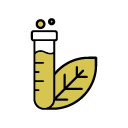
Bunte Drachenzungen
Ingredients
Zutaten: Zucker, Glukose-Fruktosesirup, WEIZENmehl, Säuerungsmittel_ Äpfelsäure, Citronensäure, Dextrose, pflanzliches Öl (Palme), natürliches Aroma, Fruchtextrakt: Apfel, Pflanzenextrakte: Kürbis, Tomate, Radeschen, Karotte, Hibiskus, Saflor, Spirulina, Süßkartoffel, Antioxidationsmittel, Ascorbinsäure, E306.Category
Gummibärchen
Brand
Hitschler
Barcode
4003840008843
Processing
Additives
-
An antioxidant and flour treatment agent derived from Vitamin C, found in many foods. It is safe for human consumption and has health benefits.
Not Restricted
-
Acidulant, flavor enhancer, preservative; naturally occurring in citrus fruits but often derived from molds; used in beverages, confectionery, and canned foods. Side effects are rare but may cause allergic reactions or digestive issues in sensitive individuals.
Not Restricted
-
Acid regulator, stabilizer, separating agent; obtained from natural minerals or synthetically produced; used in baked goods, sweets, and canned foods. Side effects are rare but may cause digestive issues if consumed in excess.
Not Restricted
Questionable Ingredients
-
Palm oil is concerning due to its high content of saturated fats and its association with health risks like cardiovascular disease and weight gain. There may also be a link to cancer, although study results are mixed. The WHO recommends limiting daily saturated fat intake, including those in palm oil, to less than 10% of total calorie intake. To minimize health risks, it is advisable to replace palm oil with healthier vegetable oils rich in unsaturated fats.
-
Natural flavors are derived from plant, animal, or microbial sources, including microorganisms, molds, or even pig bristles.
-
Refined white sugar is associated with health risks such as weight gain, type 2 diabetes, heart disease, and tooth decay. The World Health Organization (WHO) recommends limiting daily sugar intake to less than 10% of total daily calorie intake, which corresponds to about 25 grams of sugar (6 teaspoons) for a physically active adult. A further reduction to 5% (3 teaspoons or 15 grams) may offer additional health benefits. High sugar consumption can lead to overweight, type 2 diabetes, heart disease, and tooth decay. It is advisable to reduce the consumption of added sugars and focus on a balanced diet with natural, unprocessed foods.
Additives
-
An antioxidant and flour treatment agent derived from Vitamin C, found in many foods. It is safe for human consumption and has health benefits.
Not Restricted
-
Acidulant, flavor enhancer, preservative; naturally occurring in citrus fruits but often derived from molds; used in beverages, confectionery, and canned foods. Side effects are rare but may cause allergic reactions or digestive issues in sensitive individuals.
Not Restricted
-
Acid regulator, stabilizer, separating agent; obtained from natural minerals or synthetically produced; used in baked goods, sweets, and canned foods. Side effects are rare but may cause digestive issues if consumed in excess.
Not Restricted
Questionable Ingredients
-
palm oil
Palm oil is concerning due to its high content of saturated fats and its association with health risks like cardiovascular disease and weight gain. There may also be a link to cancer, although study results are mixed. The WHO recommends limiting daily saturated fat intake, including those in palm oil, to less than 10% of total calorie intake. To minimize health risks, it is advisable to replace palm oil with healthier vegetable oils rich in unsaturated fats.
-
natural flavors
Natural flavors are derived from plant, animal, or microbial sources, including microorganisms, molds, or even pig bristles.
-
sugar
Refined white sugar is associated with health risks such as weight gain, type 2 diabetes, heart disease, and tooth decay. The World Health Organization (WHO) recommends limiting daily sugar intake to less than 10% of total daily calorie intake, which corresponds to about 25 grams of sugar (6 teaspoons) for a physically active adult. A further reduction to 5% (3 teaspoons or 15 grams) may offer additional health benefits. High sugar consumption can lead to overweight, type 2 diabetes, heart disease, and tooth decay. It is advisable to reduce the consumption of added sugars and focus on a balanced diet with natural, unprocessed foods.




